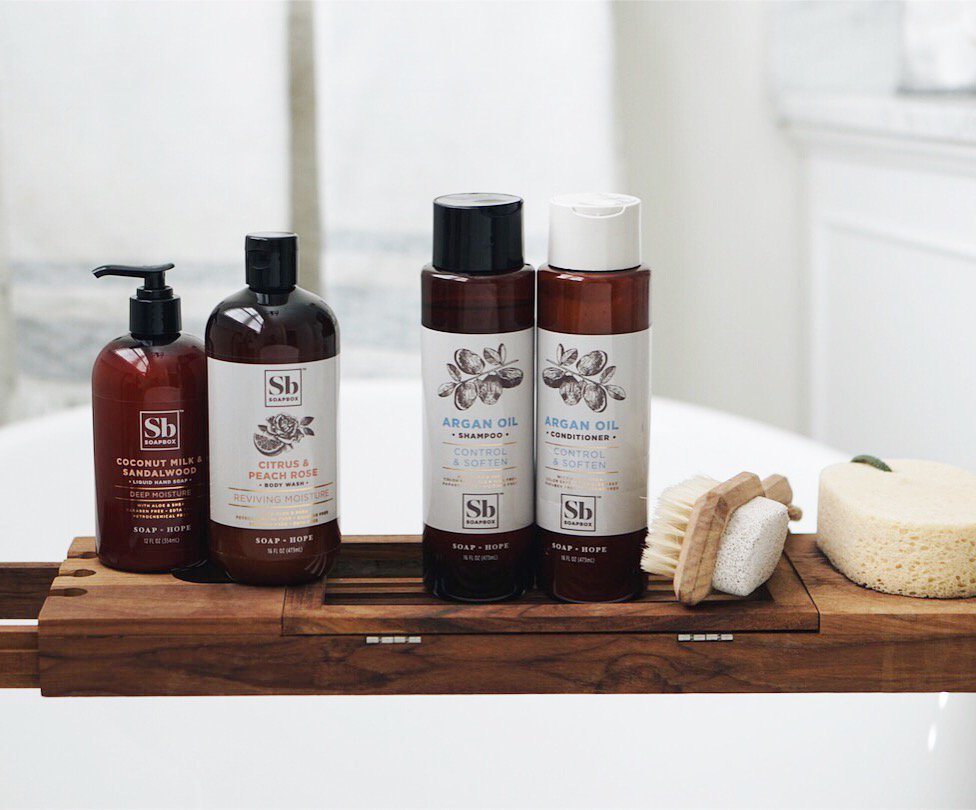For Soapbox Soaps, the ingredients are important. Cofounder and CEO David Simnick started the company by making soap in his kitchen around 2010. The formulas containing naturally-derived ingredients are now in soap, shampoo and body that’s available at bigger retailers like Target and Rite Aid.
There’s a mission that goes along with the purchase, as well. Simnick said the decision to focus on soap arose in the first place because of the need to address sanitation issues in developing countries, and providing more soap is built into the company’s model.
“Every time you buy one of our products, we donate that product to someone in need,” Simnick said.
A few years ago, cofounder Eric Vong came up with an idea to add a new feature to create a connection to that work. That involved turning to the digital side. The two worked with COO Daniel Doll and others to create the Hope Code, which started appearing on products in 2015.
For Simnick, the thinking was, “Let’s have this be a way where someone can kick our tires and ensure that the mission we say we’re doing is being done.”
Spreading hope with soap. Our partner @EcoSoapBank has impacted the lives of more than 600,000 people and your support makes it happen! pic.twitter.com/MTES19ICUm
— Soapbox (@SoapboxCare) March 1, 2018
The Hope Code is an alphanumeric code that’s printed on each label. By entering it on the Soapbox website, people can see where the donation is going, including the project that it’s helping as well as photos.
While they don’t have expectations that all customers will enter the code, given the extra step to go to a website and put in a code. But the response was good enough – tens of thousands of Hope Codes are entered in a year– that they’ve kept with it.
And a lot more Hope Codes are about to start appearing. This month, the company announced a new partnership with Delta Hotels by Marriott that will have Soapbox as the 1-2 oz. bottles of soap, shampoo and conditioner in hotel rooms at the brand’s 50 properties. The companies estimate it will result in 1.4 million donations this year.
For the company, it’s become “how we take a physical product that’s sold in grocery stores and bring it online,” Simnick said.
Before you go...
Please consider supporting Technical.ly to keep our independent journalism strong. Unlike most business-focused media outlets, we don’t have a paywall. Instead, we count on your personal and organizational support.
Join our growing Slack community
Join 5,000 tech professionals and entrepreneurs in our community Slack today!

The person charged in the UnitedHealthcare CEO shooting had a ton of tech connections

The looming TikTok ban doesn’t strike financial fear into the hearts of creators — it’s community they’re worried about

Where are the country’s most vibrant tech and startup communities?


